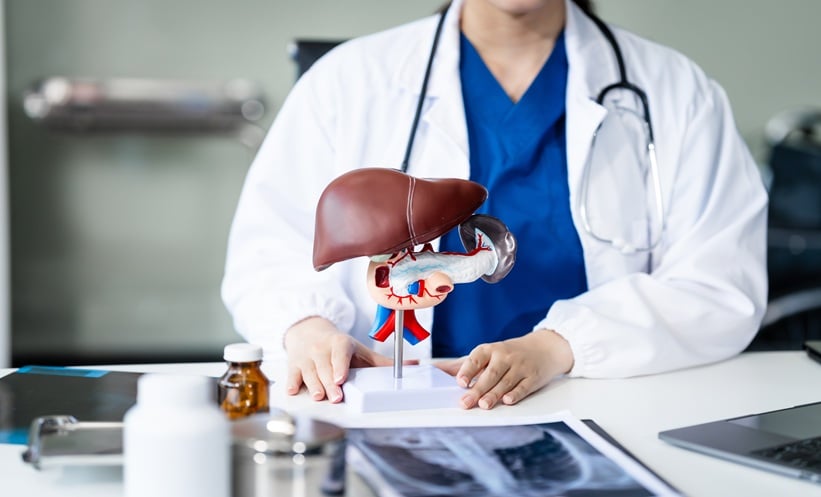A NEW study has demonstrated the safety and effectiveness of bulevirtide (BLV) monotherapy for treating hepatitis D virus (HDV)-related cirrhosis over a 96-week period. The findings offer hope for patients battling this challenging condition.
The European multicentre study tracked 244 patients with HDV-related cirrhosis. Participants, predominantly male and with a median age of 49 years, received 2 mg/day of BLV monotherapy. Researchers assessed virological, biochemical, and combined responses, alongside liver function and adverse events.
By week 96, 79% of patients achieved virological response, while 64% showed biochemical improvement, and 54% achieved a combined response. Liver stiffness, a key measure of cirrhosis severity, significantly improved over the treatment period.
The therapy proved to be well tolerated, with only 10% of patients experiencing mild and transient pruritus. Serious liver-related complications were minimal, with a 3.0% cumulative risk of hepatocellular carcinoma (HCC) and a 2.8% risk of liver decompensation at 96 weeks.
“These results confirm the long-term effectiveness and safety of bulevirtide in managing HDV-related cirrhosis, offering an important treatment option for this patient population,” the researchers concluded.
With HDV-related cirrhosis often progressing to severe liver disease, the study’s findings support bulevirtide as a critical therapy to improve outcomes and reduce complications in affected individuals.
Aleksandra Zurowska, EMJ
Reference
Degasperi E et al. Real-world effectiveness and safety of bulevirtide monotherapy for up to 96 weeks in patients with HDV-related cirrhosis. J Hepatol. 2025; DOI: 10.1016/j.jhep.2024.12.044.








